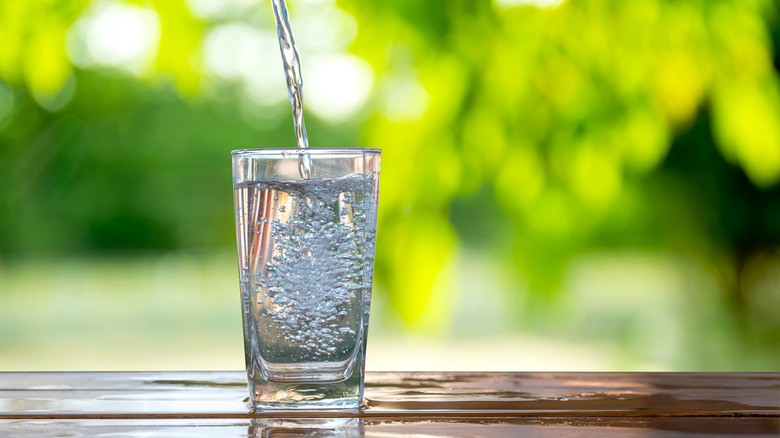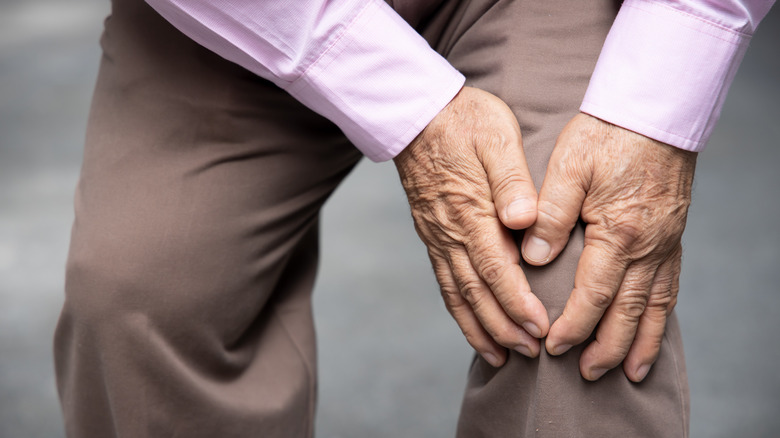How Dehydration Can Affect Your Symptoms Of Rheumatoid Arthritis
When you have rheumatoid arthritis (RA), it's important to stay hydrated. Dehydration can make your symptoms worse and can even lead to hospitalization. Symptoms of dehydration include feeling thirsty, having a dry mouth, urinating less often, having dark yellow urine, and feeling tired, dizzy, or lightheaded (via Mayo Clinic). If you experience any of these symptoms, it's important to drink more fluids and see your doctor.
While dehydration is not directly linked to rheumatoid arthritis, it can make your symptoms worse if you have RA. According to Healthline, drinking plenty of water reduces inflammation in the body and helps cushion your joints. When you are dehydrated, inflammation may affect your body more, which can make your rheumatoid arthritis symptoms worse. Dehydration can also negatively affect your joint health, which can also make your RA symptoms worse. Additionally, both dehydration and rheumatoid arthritis can cause fatigue, so dealing with both at once can make your fatigue more pronounced. Staying hydrated won't cure RA, but it can make your symptoms more manageable.
What to know about rheumatoid arthritis
Rheumatoid arthritis (RA) is a chronic, inflammatory autoimmune disorder that primarily affects the joints. Although RA can occur at any age, it is most common in middle-aged adults (via Mayo Clinic). The cause of rheumatoid arthritis is unknown, but it is thought to be caused by a combination of genetic and environmental factors. When someone has RA, their body's immune system attacks the lining of the joints. This inflammation can damage the cartilage and bone within the joint, leading to pain, stiffness, and swelling.
RA symptoms can vary from person to person, but they typically include joint pain and stiffness, fatigue, fever, and weight loss (via The Arthritis Foundation). The symptoms of RA often come and go, and they may be worse in the morning or after a period of rest. RA can also cause other problems, such as carpal tunnel syndrome, eye inflammation, and anemia.
There is no cure for rheumatoid arthritis, but there are treatments that can help relieve the symptoms and slow the progression of the disease. These treatments include medication (such as nonsteroidal anti-inflammatory drugs, disease-modifying antirheumatic drugs, and biologic agents), physical therapy, and surgery. There are also things that people with RA can do to manage their symptoms and improve their quality of life, such as exercising regularly, managing stress, and eating a healthy diet.


